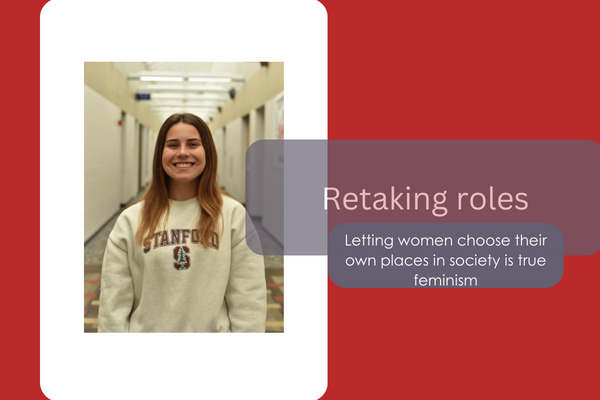Overcoming grief
April 20, 2018
On March 29, 2017, my family and I lost our sweet dog, Reba. We were devastated. We had known her all her life, though we only had her about three years, and as all dogs do, she brightened our days and brought joy into our lives. Saying goodbye to her was one of the hardest things I’ve ever had to do.
After she was gone, I went through an intense grieving period. It was as though I had lost one of my own family members. I remember coming home from the vet and seeing her things and immediately going to my room. It took us a few days to finally clear out her toys and her cage because it hurt too much to think about. I felt sad, angry and guilty, like I could have done more to make sure she hadn’t made herself sick. I was her main caregiver, I bathed her and walked her and played with her. I stayed outside with her into the wee hours of the morning when she was seriously ill because I didn’t want her to feel scared. Going back to school with all of that residual guilt and sadness was tough, and I struggled focusing as some things triggered me into thinking of her, making me upset. On top of that, I also felt like I didn’t have that many people that I could talk to that would understand, which made me feel even more isolated in my grief. I struggled to come to terms with the fact that she was gone.
Understanding and being aware of grief is important for both ourselves and others so that we can better heal and accept what has happened.
When grieving, one will go through a range of emotions as a response to the loss they have experienced. They are usually referred to as the five stages of grief: denial, anger, bargaining, depression and acceptance, according to grief.com. But these are not the norm. Every loss is different, and everyone’s response will be different, as some can experience fewer or maybe even additional stages in their healing process. Being there for your friends and family is important to helping them through their journey as they try to come to terms. I am so thankful for the few friends I had to support me and let me talk to them when I felt the need. Expressing those feelings really helped me get to the point where I am today, where I can freely talk about her without getting upset.
Doctor Edward T. Creagan, the professor of medical oncology at Mayo Clinic of Medicine, describes learning of his mother’s death as though a two-by-four had struck him across the abdomen. He says he felt “drained of every ounce of vitality,” but that improved as time went on. He began to better understand his grief and come to terms with it. He was able to understand that the compilation of the memories of his loved one, his sorrow and his eventual acceptance soon became an integrated part of his life and how he viewed himself.
Knowing when and how you’re grieving can help you better cope with your loss and accept what has happened. Having a support system of friends and family can be helpful after a loss, and sometimes even going to seek professional counseling through therapists or counselors can be beneficial. You’re not alone in your journey, and finding those outlets to help you along as you get to your place of acceptance is crucial. Hold on to your happy memories and know that it will be okay.








